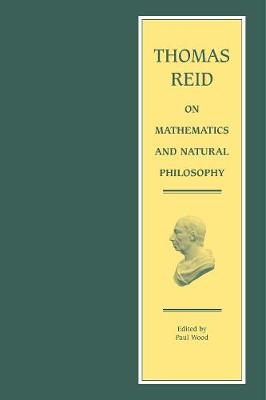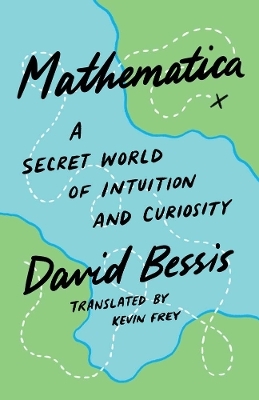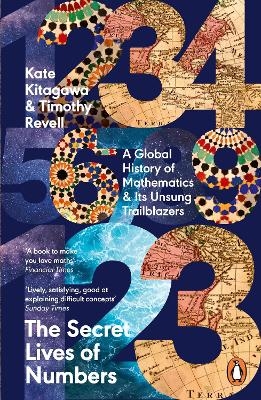
Thomas Reid on Mathematics and Natural Philosophy
Seiten
2017
Pennsylvania State University Press (Verlag)
978-0-271-07849-6 (ISBN)
Pennsylvania State University Press (Verlag)
978-0-271-07849-6 (ISBN)
Reconstructs the Scottish Enlightenment philosopher Thomas Reid's lifelong engagement with the physical sciences and makes clear why these fields were central to his epistemology and moral and social philosophy.
A philosopher, scholar of the natural world, and gifted mathematician, Thomas Reid holds a distinctive place in the Scottish Enlightenment. This volume reconstructs Reid’s lifelong engagement with the physical sciences and makes clear why these fields were central to his epistemology and moral and social philosophy.
Placing Reid’s “Essay on Quantity” alongside his previously unpublished writings on mathematics and the physical sciences, Paul Wood shows that, in contrast to Francis Hutcheson and David Hume, Reid was a philosopher rooted not only in the science of man but also in the sciences of nature. A self-professed Newtonian, Reid honed his observational and experimental skills while investigating a broad range of theoretical problems in astronomy, mechanics, optics, electricity, and chemistry. He championed the practical application of mathematics, immersed himself in Newton’s mathematical corpus, and addressed foundational questions such as the conceptual basis of Euclidean geometry.
Comprehensive and invaluable, this volume demonstrates that Reid built on his own early precociousness in mathematics to become one of the leading mathematicians and natural philosophers of the Scottish Enlightenment.
A philosopher, scholar of the natural world, and gifted mathematician, Thomas Reid holds a distinctive place in the Scottish Enlightenment. This volume reconstructs Reid’s lifelong engagement with the physical sciences and makes clear why these fields were central to his epistemology and moral and social philosophy.
Placing Reid’s “Essay on Quantity” alongside his previously unpublished writings on mathematics and the physical sciences, Paul Wood shows that, in contrast to Francis Hutcheson and David Hume, Reid was a philosopher rooted not only in the science of man but also in the sciences of nature. A self-professed Newtonian, Reid honed his observational and experimental skills while investigating a broad range of theoretical problems in astronomy, mechanics, optics, electricity, and chemistry. He championed the practical application of mathematics, immersed himself in Newton’s mathematical corpus, and addressed foundational questions such as the conceptual basis of Euclidean geometry.
Comprehensive and invaluable, this volume demonstrates that Reid built on his own early precociousness in mathematics to become one of the leading mathematicians and natural philosophers of the Scottish Enlightenment.
Thomas Reid (1710–1796) was a Scottish philosopher. The founder of the Scottish School of Common Sense, he played an integral role in the Scottish Enlightenment. Paul Wood is a Professor of History at the University of Victoria, Canada.
| Erscheinungsdatum | 29.01.2018 |
|---|---|
| Reihe/Serie | Edinburgh Edition of Thomas Reid |
| Verlagsort | University Park |
| Sprache | englisch |
| Maße | 152 x 229 mm |
| Gewicht | 975 g |
| Themenwelt | Mathematik / Informatik ► Mathematik ► Geschichte der Mathematik |
| Naturwissenschaften ► Physik / Astronomie | |
| Sozialwissenschaften ► Soziologie | |
| ISBN-10 | 0-271-07849-9 / 0271078499 |
| ISBN-13 | 978-0-271-07849-6 / 9780271078496 |
| Zustand | Neuware |
| Haben Sie eine Frage zum Produkt? |
Mehr entdecken
aus dem Bereich
aus dem Bereich
a secret world of intuition and curiosity
Buch | Hardcover (2024)
Yale University Press (Verlag)
CHF 45,80
a global history of Mathematics & its Unsung Trailblazers
Buch | Softcover (2024)
Penguin Books Ltd (Verlag)
CHF 22,65
Das Jahrhundert, in dem die Mathematik sich neu erfand. 1870-1970
Buch | Hardcover (2022)
Heyne (Verlag)
CHF 30,80


